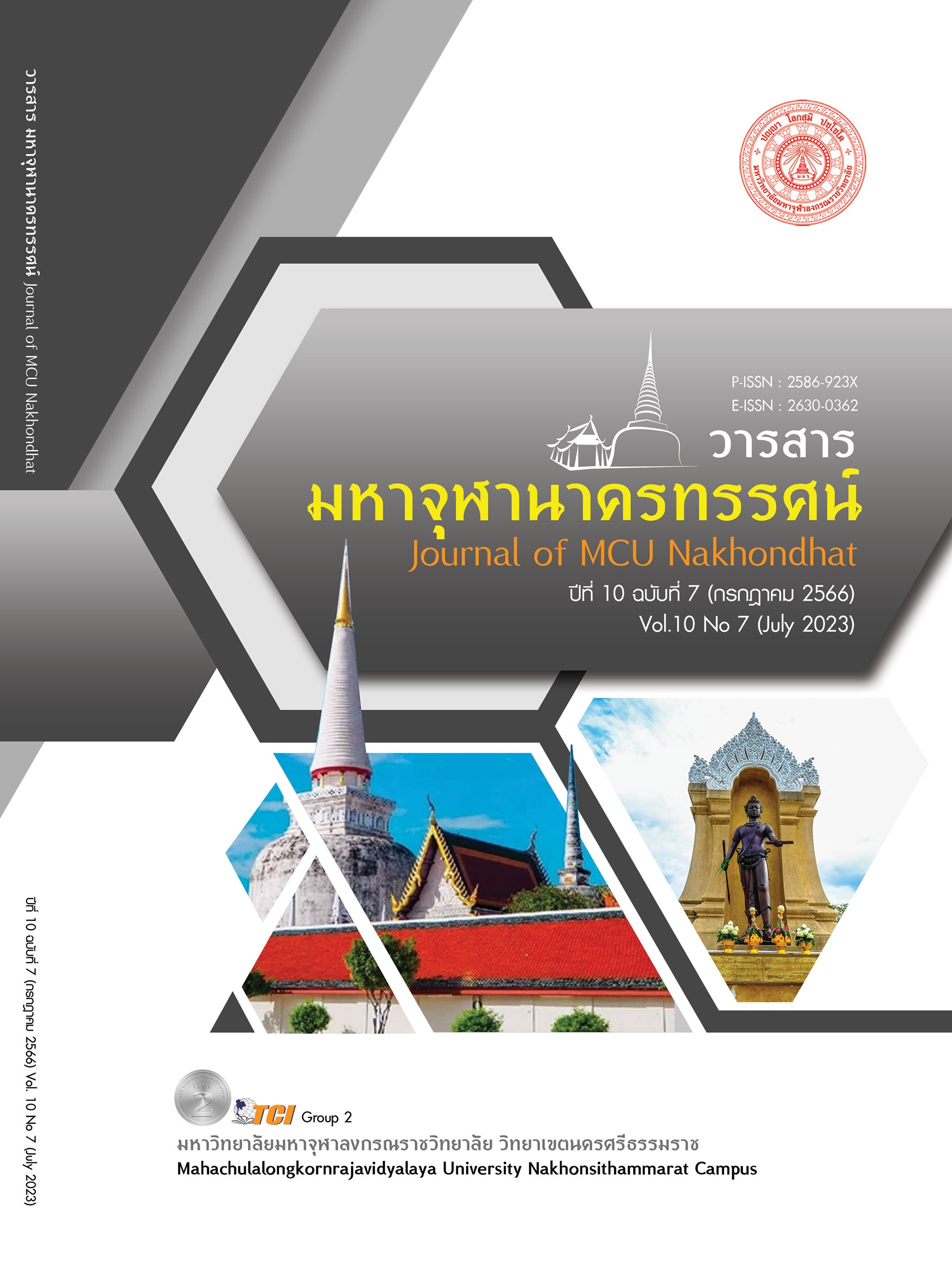STIGMA AND DISCRAMINATION AGAINT LGBTIQN+ WORKERS
Main Article Content
Abstract
The purpose of this academic article was to discuss stigma and discrimination against LGBTIQN+ workers which in the present, although it is open in terms of gender diversity but the issue of stigma and discrimination remains. As a worker with LGBTIQN+ in the government and private sectors, there are still many concerns that continue to be a problem for work to requires knowledge Competence comes in exchange for working stigmatized and discriminated against. In order not to cause problems and obstacles to work exclusion or discrimination of colleagues will not dare to show openly, gossip and contempt. Therefore, we must try to prove it with results. knowledge and abilities for accepting people of the opposite sex as laborers, revealing ongoing concern about dress codes, according to official regulations. Gender minority status was not seen as a professional hindrance for laborers in generally open-minded organization environments where exclusion and discrimination or disparaging gossip were rarely overt. Laborers were obliged to prove their own professional abilities to advance the acceptance of gender variant individuals as laborers. Thailand’s health education. Thailand’s health education model is still based on traditional models, without updates from current-day understanding of potential negative impact caused by interpersonal discrimination. One example is misrepresenting lesbian, gay, bisexual, transgender and intersex (LGBTIQN+) people as abnormal or mentally ill. This error might provoke rejection or hatred of minorities through unintentional promulgation of misleading opinions. As a result, some LGBTIQN+ remain closeted due to uncertainty about to remain safe in the workplace and in society.
Article Details

This work is licensed under a Creative Commons Attribution-NonCommercial-NoDerivatives 4.0 International License.
References
กังวาฬ ฟองแก้ว. (2563). เรื่องราวแห่งการตีตรา: การศึกษาการตีตราและการเลือกปฏิบัติต่อกลุ่มบุคคลข้ามเพศในประเทศไทย. ใน รายงานการวิจัย. โครงการพัฒนาแห่งสหประชาชาติ.
ชเนตตรี ทินนาม และคณะ. (2564). ยุทธศาสตร์สุขภาวะ LGBTIQN+ ในประเทศไทย. กรุงเทพมหานคร: โรงพิมพ์เดือนตุลา.
ทีเอ็นเอ็น ออนไลน์. (2566). ตร.ควงแฟนหนุ่มจดทะเบียน ครอบครัว-เพื่อน ยอมรับในตัวตน. เรียกใช้เมื่อ 15 กุมภาพันธ์ 2566 จาก https://www.tnnthailand.com/news/social/138662/
ธนาศาน สุภาษี. (2563). การตีตราและเลือกปฏิบัติต่อเพศวิถีในโลกแห่งการทางานกรณีศึกษาอาชีพข้าราชการครูโรงเรียนมัธยมศึกษาแห่งหนึ่งในกรุงเทพมหานคร . ใน สารนิพนธ์รัฐศาสตรมหาบัณฑิต สาขาวิชาบริหารรัฐกิจและกิจการสาธารณะสำหรับนักบริหาร. มหาวิทยาลัยธรรมศาสตร์.
บุษกร สุริยสาร. (2557). อัตลักษณ์และวิถีทางเพศในประเทศไทย. ใน รายงานการวิจัย. องค์การแรงงานระหว่างประเทศ.
พิมพวัลย์ บุญมงคล และคณะ. (2551). ภาษาเพศในสังคมไทย: อำนาจ สิทธิ และสุขภาวะทางเพศ. กรุงเทพมหานคร: เจริญดีมั่นคงการพิมพ์.
พิริยาภรณ์ อันทอง และศุภกร เอกชัยไพบูลย์. (2559). Checklist พิชิตธุรกิจยั่งยืน. กรุงเทพมหานคร: ศูนย์พัฒนาความรับผิดชอบต่อสังคม ตลาดหลักทรัพย์แห่งประเทศไทย.
สุไลพร ชลวิไล. (2550). เพศไม่นิ่ง: ตัวตน เพศภาวะ เพศวิถี ในมิติสุขภาพ. นครปฐม: มหาวิทยาลัยมหิดล.
สุไลพร ชลวิไล. (2562). เพศแห่งสยาม. กรุงเทพมหานคร: สถาบันพิพิธภัณฑ์การเรียนรู้แห่งชาติ.
สุวิชา เป้าอารีย์. (2565). สังคมไทยคิดอย่างไรกับเพศที่ 3, ศูนย์สำรวจความคิดเห็น “นิด้าโพล” สถาบันบัณฑิตพัฒนบริหารศาสตร์. เรียกใช้เมื่อ 12 กุมภาพันธ์ 2566 จากhttps://nidapoll.nida.ac.th/data/survey/uploads/FILE-1654933256095.pdf
Alex Flagg. (2002). Managing diverse workgroups successfully. USA: United Behavioral Health.
Danielle Agugliaro. (2021). 31 Companies with Impactful Initiatives to Support Their LGBTQ Employees. Retrieved กุมภาพันธ์ 10, 2566, from https://ripplematch.com/insights/companies-with-impactful-initiatives-to-support-their-lgbtq-employees-ce4be06a/
Erving Goffman. (1963). Stigma: Note on the Management of Spoiled Identity. Harmondsworth: Penguins Book.
Gregory M. Herek. (2007). Confronting Sexual Stigma and Prejudice: Theory and Practice. Journal of Social Issues, 4 (2007), 905–925.
International Bank for Reconstruction and Development / The World Bank. (2018). Economic Inclusion of LGBTI Groups in Thailand. Washington DC: The World Bank.
McKinsey. (2020). Benefit of Workplace Diversity: The Value of LGBTQ Employees. Retrieved กุมภาพันธ์ 10 , 2566, from https://www.peoplescout.com/insights/workplace-diversity-lgbtq-employees/
Peter Hegarty & Annette Smith. (2022). Public understanding of intersex: an update on recent findings International . Journal of Impotence Research, 14(2022), 1-6.
USAID. (2020). Being LGBT in Thailand. Retrieved February 10, 2566, from https://www.usaid.gov/sites/default/files/documents/1861/Being_LGBT_in_Asia_ThailandCountry_Report_Thai_Language.pdf


